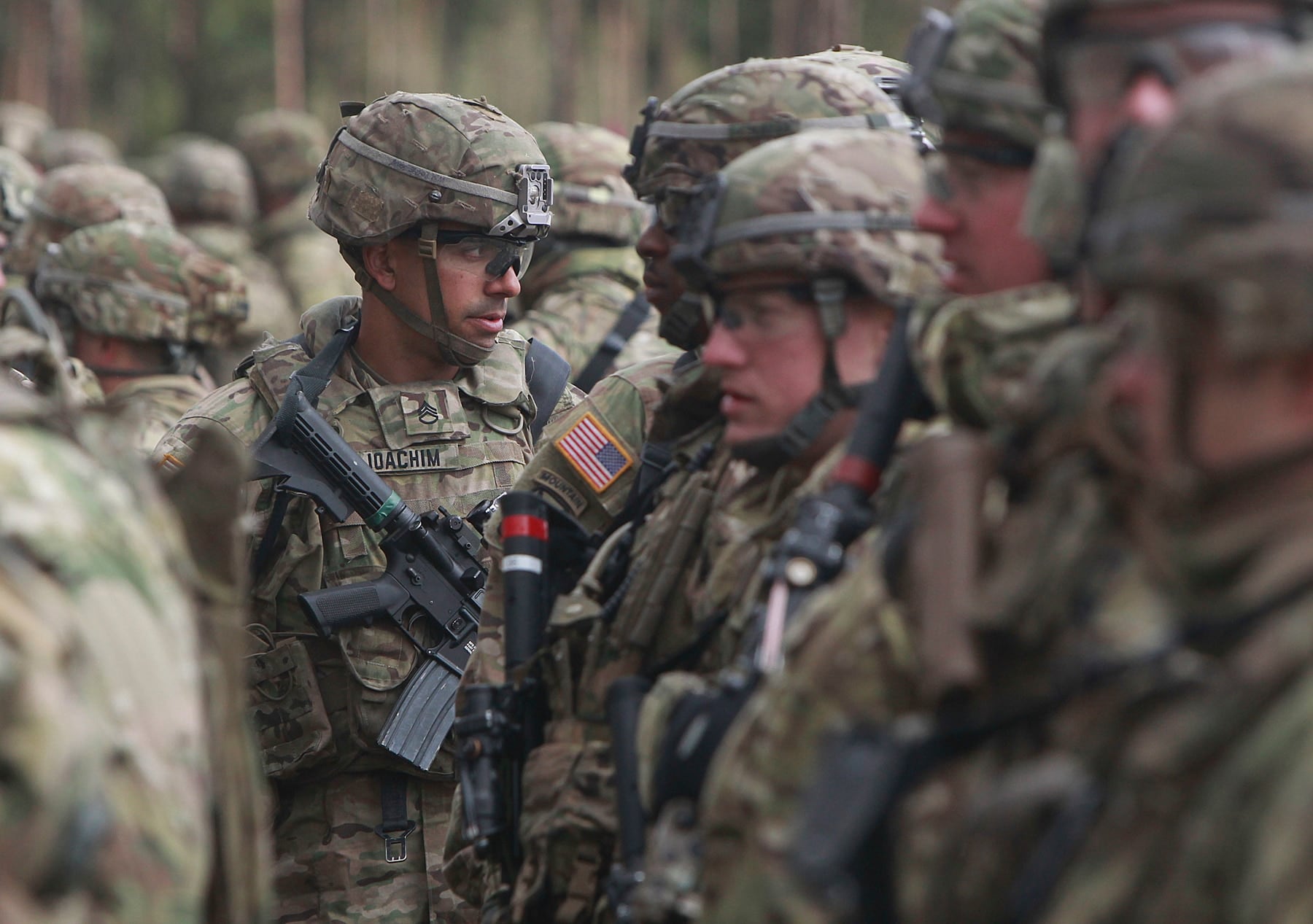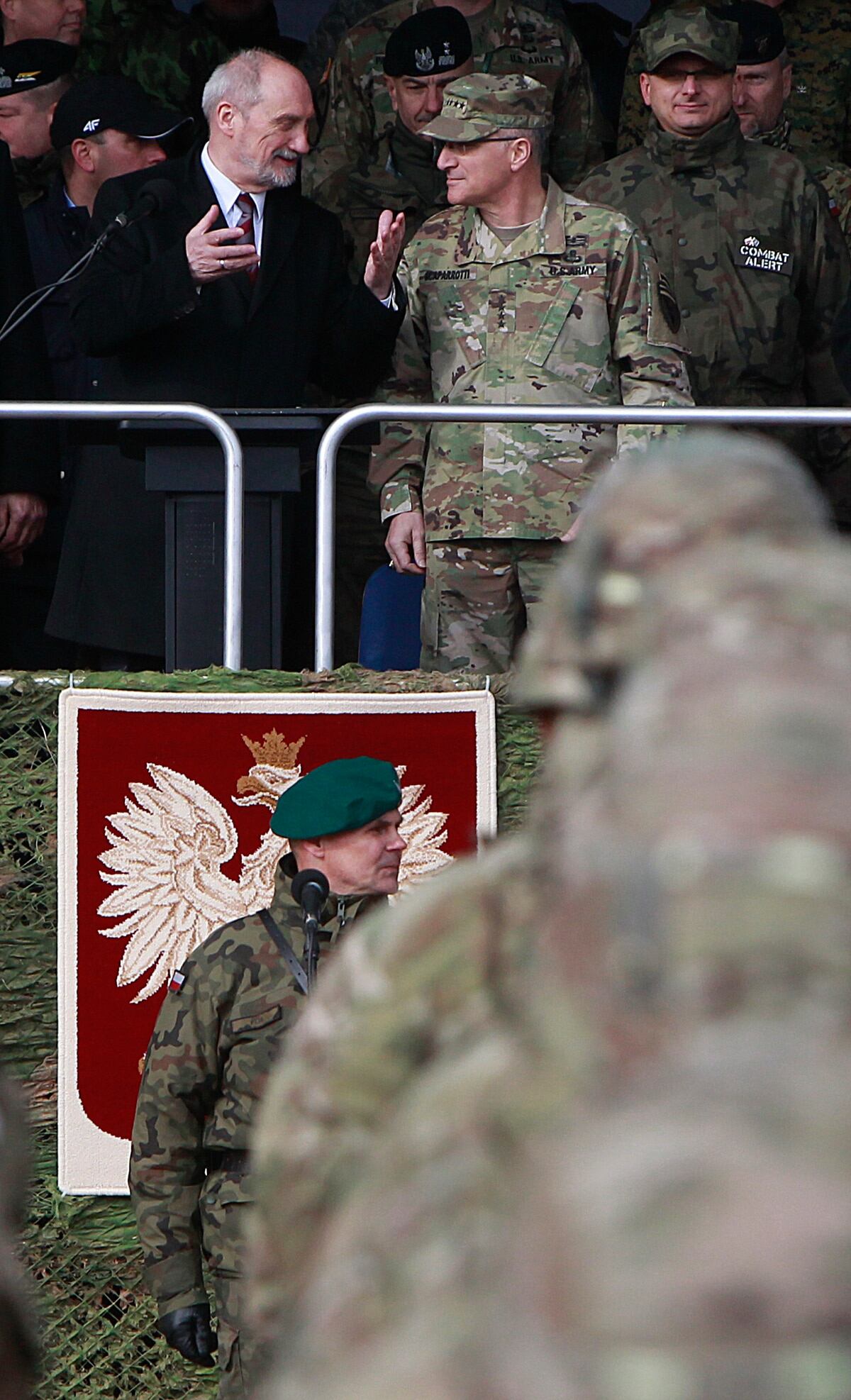WARSAW, Poland — Polish leaders welcomed a new multinational NATO battalion to Poland on Thursday, with the president calling it "a historic moment for my country."
The near-permanent deployment of a NATO battalion under U.S. command marks the first time NATO troops have been placed so close to Russian territory, a step the Kremlin denounces as a threat to its own security.
But Polish President Andrzej Duda said the deployment, to Poles, stands as a symbol of liberation and inclusion in the Western democratic world.
"It's not an exaggeration to say that generations of Poles have waited for this moment since the end of the Second World War," Duda said in the northeastern town of Orzysz as he addressed the troops and the U.S. and British ambassadors.

U.S. troops, part of a NATO mission to enhance Poland's defence, are getting ready for an official welcoming ceremony in Orzysz, northeastern Poland, Thursday, April 13, 2017.
Photo Credit: Czarek Sokolowski/AP
The battalion of about 1,000 troops is led by the United States, but includes troops from Britain and Romania. Croatian troops are expected to join later.
Their base of operations, Orzysz, is 60 kilometers (37 miles) from the border with Kaliningrad, a Russian territory on the Baltic Sea separated from the Russian mainland.
While NATO has held exercises in the region in past years, the deployment marks the alliance's first continuous troop presence in the area that was considered by defense experts as vulnerable.
Defense Minister Antoni Macierewicz said the NATO presence guarantees the security of NATO's eastern flank.

Polish Defence Minister Antoni Macierewicz, left, talks with General Curtis M. Scaparrotti, commander of NATO troops in Europe, during an official welcoming ceremony for the new force that also includes British, Romanian and other troops, in Orzysz, northeastern Poland, Thursday, April 13, 2017.
Photo Credit: Czarek Sokolowski/AP
The NATO deployment is separate from a U.S. battalion of 3,500 troops that arrived in Poland earlier this year and which is headquartered in southwestern Poland, near the German border.
Both missions are responses to calls for greater U.S. and NATO protection by a region fearful after Russia's 2014 annexation of Crimea and its support for a rebel insurgency in eastern Ukraine.




